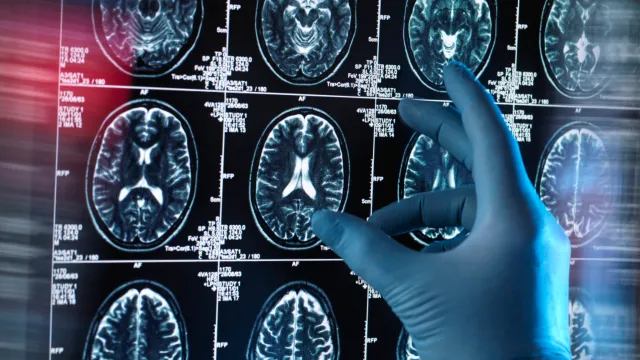The findings, published in the esteemed journal Nature Aging, mark a significant stride in ongoing efforts to identify individuals at risk for dementia through a simple blood test.
In a groundbreaking development, researchers from the United Kingdom and China have unearthed a wealth of proteins within frozen blood samples that could potentially forecast various forms of dementia more than a decade before clinical diagnosis.
The findings, published in the esteemed journal Nature Aging, mark a significant stride in ongoing efforts to identify individuals at risk for dementia through a simple blood test. This breakthrough holds the promise of accelerating the development of novel treatments for various forms of dementia.
Presently, the detection of abnormal levels of beta-amyloid protein through brain scans can signal the onset of Alzheimer’s dementia years before its manifestation. However, these tests come with a hefty price tag and are often not covered by insurance, posing barriers to widespread accessibility.
Dr. Suzanne Schindler, an Alzheimer’s researcher at Washington University in St. Louis, who was not directly involved in the study, remarked, “Based on this study, it does seem likely that blood tests will be developed that can predict risk for developing various forms of dementia over the next 10 years, although individuals at higher risk often have difficulty knowing how to respond.”
Jian-Feng Feng of Fudan University in Shanghai, one of the study authors, emphasized the critical importance of such tests, particularly in aging populations like China’s. Discussions are already underway for potential commercial development of a blood test based on the research findings.
The study, conducted by researchers from the University of Warwick and Fudan University, scrutinized 52,645 blood samples sourced from the U.K.’s Biobank research repository, collected between 2006 and 2010 from individuals without any apparent signs of dementia at the time. Among these samples, 1,417 individuals eventually developed Alzheimer’s disease, vascular dementia, or dementia stemming from various causes. Analyzing the protein signatures common in these cases, the researchers identified 1,463 proteins associated with dementia and ranked them according to their predictive potential.
They pinpointed elevated levels of proteins including GFAP, NEFL, GDF15, and LTBP2 in the blood of individuals who were consistently more likely to have developed Alzheimer’s disease, vascular dementia, or dementia from any cause. Notably, individuals with heightened levels of GFAP were 2.32 times more likely to develop dementia, corroborating earlier findings from smaller-scale studies highlighting the role of this protein.
While the research offers promising insights, the authors caution that their findings have yet to undergo independent validation. One protein that showed promise in predicting dementia, neurofilament light, is already utilized in clinical settings for diagnosing and monitoring certain conditions such as multiple sclerosis.
Dr. Schindler underscored that the study did not encompass clinically available blood tests for Alzheimer’s disease, which could potentially offer even better predictive capabilities for dementia development due to Alzheimer’s. Such tests are already making headway in identifying candidates for clinical trials testing treatments in patients with early-stage or presymptomatic disease.
Notably, drugs like Eisai and Biogen’s Leqembi have recently garnered regulatory approval in the United States, Japan, and China, opening new avenues for tackling this debilitating condition.
As research in the field of dementia continues to advance, the discovery of blood-based biomarkers holds immense promise in revolutionizing early detection and intervention strategies. With further validation and refinement, these findings could pave the way for more targeted approaches to dementia prevention and management, offering hope to millions worldwide grappling with the impact of this devastating disease.
This groundbreaking study underscores the transformative potential of blood-based biomarkers in the early detection and management of dementia, offering new hope in the fight against this debilitating condition.
